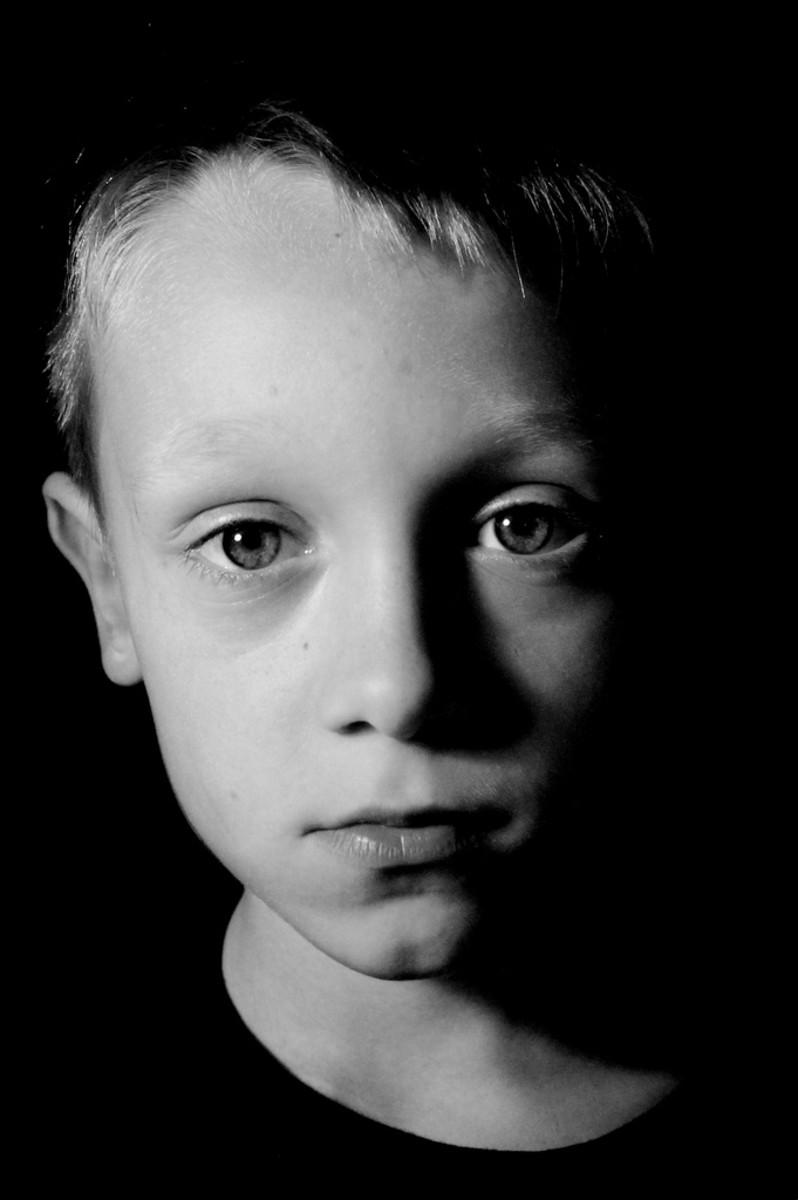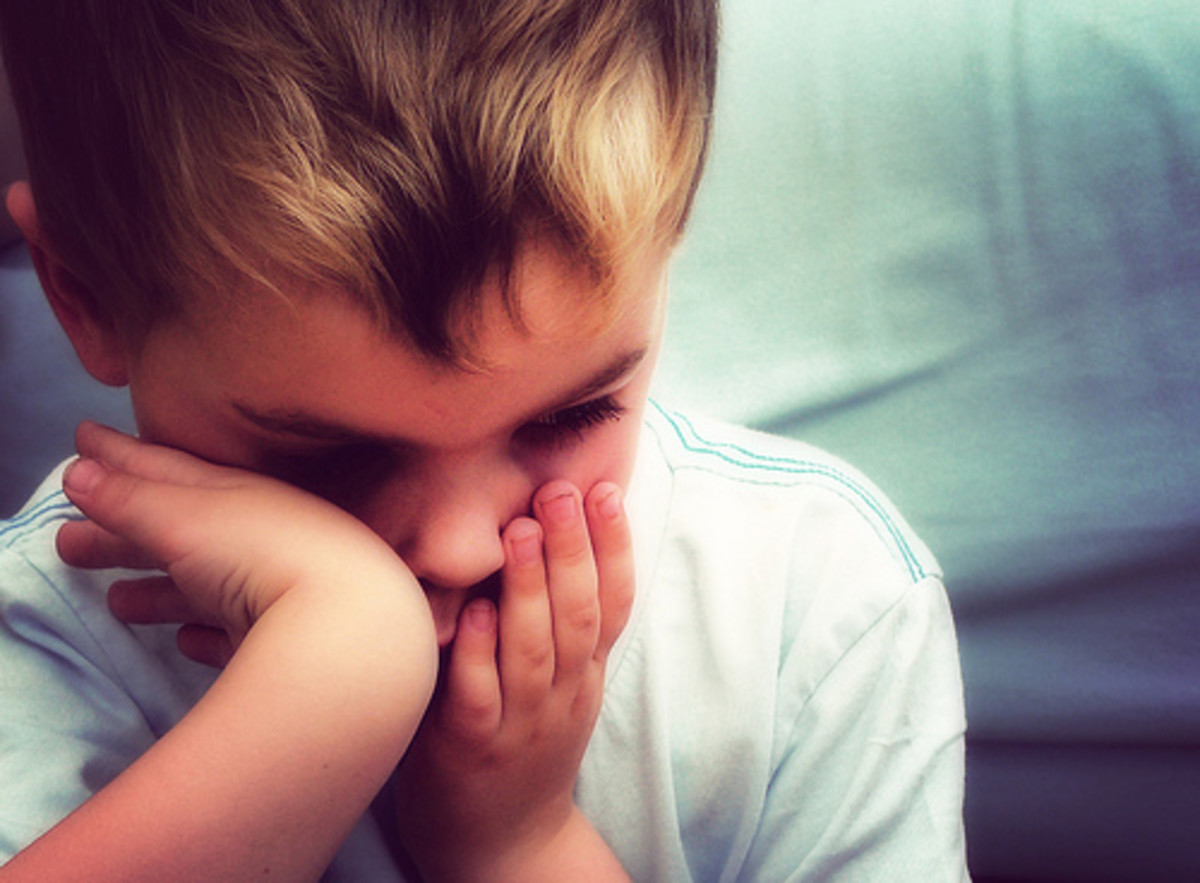Negative Outcomes Regarding Children From Large Families

According to an article from Business Insider, a study done by researchers Juhn & C. Andrew Zupann of Houston University along with Yona Rubinstein of the London School of Economics, children born into large families have lower likelihoods to succeed because with each additional child in the family, there is LESS parental involvement in each child's life. Also there are less socioeconomic resources vested per child. The study indicated that in large families, boys are affected behaviorally while girls are affected cognitively. Here's the link: www.businessinsider.com/kids-from-big-f … ed-2015-12
This article has confirmed what I have observed about large families for decades. Children in large families fare THE WORST in all outcomes: academic, behavioral, & even socioeconomic. Your thoughts?Hello, Grace. Thanks for starting this thread. If you are looking for someone with a little authority, by all means talk to me. I have as little as anybody!

I'm glad you enjoyed this article, but I wonder if you read the actual study. There are two major conclusions in this research and the opening post (OP) doesn't mention either one.
CORRELATION DOES NOT MEAN CAUSATION
First, the final paper establishes a correlation between the number of siblings in a household and various lifestyle outcomes but it clearly states more research is needed to establish any causal relationship between the two! Contrary to the perspective suggested in the OP, declining lifestyle differences may correlate with the number of siblings in a family unit but that decline is not necessarily caused by every additional newborn. In fact, I see the study emphasizes that the mother's intelligence and economic well-being seems to influence her children's quality of life outcomes more then the number of siblings. Therefore, a mother's intelligence also correlates with lifestyle differences and has been found to have a greater impact.
DATA TRENDS BOTH NEGATIVE AND NEGLIGIBLE
Secondly, I see the data gathered in this research also shows the average lifestyle trends were not only negative, but they were also quite negligible.
"Our fixed effect estimates indicate that the arrival of a younger sibling reduces measures of parental investment as well as cognitive and non-cognitive outcomes of older children by approximately one-tenth of a standard deviation, the researchers wrote. One-tenth of a standard deviation is real but hardly significant.
Likewise, the data indicate the overall amount of education received by each child declined by -0.13 years for each additional child born. In other words, in a family where six siblings ultimately pursue advanced degrees in college, perhaps one of them might theoretically miss his goal by less than one year of study. This is not an outcome that is likely to devastate that person economically.
The OP goes on to say, "This article has confirmed what I have observed about large families for decades. Children in large families fare THE WORST in all outcomes: academic, behavioral, & even socioeconomic.
I would say this statement is an unjustified exaggeration. Children in large families DO NOT ALWAYS fair the worst in ALL outcomes! Some fair very well and some do not fair as well. The study reports AVERAGE results. It does not, however, compare the number of participants that responded positively to additional siblings to the number of participants that did not. Furthermore, the research team determined that behavioral outcomes are short-lived and their effects typically dissipate over time.
Finally, personal observations of large families are fundamentally and scientifically irrelevant especially when they are applied to very large populations. There is no scientific evidence that establishes sibling numbers or birth order alone actually cause substantial, serious, long term, negative effects on individuals or on society. Research has only established correlations, not causes.
Regarding decades of observing large families, I also have my own unscientific, irrational, and irrelevant anecdotes that suggest children from large families can, and do, excel, prosper, and achieve as much as, if not more than, an only child:
* Former President John F. Kennedy was the second of nine children.
* Stephen Colbert is the youngest of 11 children.
* Pop superstar Madonna has 5 siblings and 2 half-siblings.
* Actor Mel Gibson was born the 6th of 11 children.
* Actor Bill Murray has 8 siblings.
* Country superstar Dolly Parton has 11 siblings.
These children from large families have not suffered "THE WORST in all outcomes: academic, behavioral, & even socioeconomic. The OP only focuses on the study's negative average outcomes and it totally ignores the enormous number of successful data points at the positive end of the spectrum. Take, for example, a family of 6 siblings whose individual scores in one of the study's typical cognitive outcomes could be +1, +1, +1, +1, -2 and -4. This family's average outcome turns out to be -0.33 but the siblings in this large family with positive lifestyle outcomes enjoy a two to one majority.
WHAT ARE MY THOUGHTS?
There is no evidence to prove an individual's lifetime achievements and lifestyle accomplishments are defined, or confined, by family size, by birth order, or by the average negative outcomes compiled in this study.
Thanks again, Grace. Nice to share with you.
What you stated are rarities. Substantiated studies have endlessly proven that children from large families consistently are low academic achievers. In the large family household, there are no books nor other forms of cultural nor intellectual paraphernalia. Children in such households have no way to be intellectually stimulated. Also, parents of large families typically are far less educated than parents of small families who are more educated. Such parents have nothing to give to their children intellectually.
Also, children in large families aren't exposed to cultural & intellectual activities as their parents don't have the socioeconomic means to provide their children w/dancing, music, & other cultural lessons. They also don't have the means to expose their children to other forms of cultural activities which would expose their children to a large variety of children & people. Children from large families stay among themselves which explains why they are culturally & intellectually backwards in comparison to children from small families who are more culturally & intellectually sophisticated.
Lastly, children in large families as they only mingle with each other & seldom w/their parents have a lower, rudimentary level of vocabulary & expression as they are constantly exposed to children instead of adults. Dr. Zajonc, a social psychologist, stated that the more children there are in the home environment, the less intellectually mature children are. Children from large families usually have more child-like mannerisms than children from small families who are more advanced in terms of mannerisms & vocabulary. Children from large families are backwards in terms of their being insular & distrustful of those outside the immediate familial circle. Children from small families are more open & accepting of those outside the familial circle- they also make friends easier. Children from large families seldom, if ever, have friends outside of their siblings.Reports of correlation =/= exceptions being rare. These days it might be a good way to escape the smothering style of parenting that is becoming the norm.
Parents of small families don't smother their children. They love, nurture, & give them the proper guidance. This is in diametric opposition to parents of large families who could care less about their children, let them go wild & unsupervised. Children in large families are the ones who are delinquents, teen age parents(particularly mothers), & more likely to indulge in criminal or negative activities because their parents didn't have the intellectual foresight to have the amount of children they can give a high quality of life to. They just reproduce without thinking & considering the consequences of their actions. Yes, parents of large families, for the most part, are neglectful, even absentee parents which aren't good for children. One can say that these parents are UNDERprotective.
And then there are the ones that smother them. It happens.
I might take your critique more seriously if you weren't so unrealistic in the dichotomy you present. Also if you weren't so clearly obsessed with the issue.Not obsessed at all. Parents who have large families are unintelligent, thoughtless, & irresponsible. They have to be these components to condemn their children to a hellish life of want & struggle, not to mention abominable neglect. Parents of large families don't give a good ********* about their children. They are only concerned about what they want, not caring about their children's socioeconomic & educational wellbeing. Their actions are beyond abusive.
As we can see large families have large problems and issues to cope with. I think that the study is partially right. However, I am also thankful to see that people who have commented on the matter also have read some relevant information on the topic of how the kids from large families are educated these days. Considering the topic, the author is right. But modern families have modern ways of addressing the issues. Parents who have many children may not devote as much time to up bringing up all of their kids, but these kids can look for help with their assignments and challenges during a school year. Since you are from a large family you may or may not turn out to be a bully, but you will always have the chance to write a bullying essay if you look closely to the chances the modern online learning can offer.
You're correct in your premise. Large families are problematic. They are impoverished with very little or no opportunities educationally, intellectually, & socioeconomically. Children from large families commonly do without. The majority of large families have outside assistance whether from more affluent relatives, charities, or from the government.
You are also correct in saying that because of socioeconomic deprivations, children in large families are stunted academically & culturally as there are no forms of intellectual stimulation in the home environment. Children from large families can be classified as backwards because they mainly associate w/themselves & seldom w/those outside their immediate family circle. Because they mingle w/primarily other siblings, their vocabulary & mannerisms are rudimentary at best. Dr. Zajonc, a social psychologist, indicated that the more children in the home environment, the more intellectually backwards & immature a child is. If you mingle w/children from large families, you will notice that they are more academically & socially backwards to the point of some type of retardation.
You mentioned that children from large families tend to be bullies. You are right! Children from large families tend to be bullies. They are the children who are always fighting. I, too, have noticed this. Thanks for your intelligent input, it is greatly appreciated.
I can vouch for the fall in parental involvement from my own experience, but I don't think it's necessarily a bad thing.
I'm one of four children. My youngest sister suffered from too LITTLE parental control and that has had an impact on her adult life, so that seems to confirm the theory. However, I think my eldest sister suffered from too MUCH parental control - she had very little freedom, and that has adversely affected her in adult life. So there's pluses and minuses wherever you are in the family.Four children isn't considered by definition to be a large family, it is classified as a medium family. A large family is defined as 6-more children per household.
Parents of medium-sized families (3-4 children per household), on average, give their children the individualized attention they need although it may be difficult at times. 3-4 children are within the parents' span of control. However, parents of large families(6-more children per household) cannot exercise effective span of control over their children. Child neglect is quite prevalent in large families. Children also raise themselves in large families. I have written several hubs on the topic at hand.
Yes, I know, I didn't say it was a large family. I'm pointing out that even in a four-child family, that gradual decline in parental involvement is discernible, in my experience.
Excellent point made, Marisa. The MORE children, the LESS PARENTAL & INDIVIDUALIZED attention children receive which oftentimes affect them negatively.
Children who grow up in large families have stunted emotional & intellectual development because of parental neglect. They primarily interact w/other children, not their parents & this is reflected in their lack of intellectual development in terms of mannerisms & vocabulary. Dr. Zajonc, a social psychologist, stated that the more children per household, the less intellectually mature children are.
Parents of large families don't give their children the prerequisite attention they need. Children are left to their own devices. They have to learn to navigate their environment as their parents aren't there for them. I knew many children from large families who RAISED THEMSELVES, that is so sad. They also don't have NORMAL parent-child relationships like children of small families do. This was a good study done. There are so many studies on the large families. The large family possess so many dysfunctions & pathologies: child neglect, parentified children, low academic/ intellectual achievement, high percentage of punishment, & most of all, impoverishment, even penury.
It is no wonder that children from large families gravitate towards deleterious activities such as gangs. They also are more prone to indulge in delinquent behavior. Girls from large families are likely to have teen pregnancies because they didn't receive parental attention nor guidance. I read a similar article on this in the NEW YORK DAILY NEWS in the 1990s. There is yet another article I read in the 1990s which state that the larger the family, the lower the children's IQ. There is so much abnormality in large families that it is beyond shocking. It is the poor & unintelligent, less educated, even uneducated who have large families.
The Turpins are a prime albeit a very extreme example to what occurs in large/very large families.
I liked your post so much and I appreciate you for posting it here Actually I was searching for the aussiewriter online and I found your post and I liked it so much. So I decided to read it once because we never ignore the good things.
Having a family of 4 children isn't being defined as a large family, it can be say that medium family although a family of 6 children per household could be define as large family. A medium sized family could give individualized attention to their child in their difficult times in the span control of times as compare to the large families they couldn't give individualized attention to their children within the span of time over their children which occurs child neglection. I am logo designer by profession but I also wrote most of the topics related to raising child in joint/large family and child development with family influence.
Related Discussions
- 37
The Psychology of the Large Family
by Grace Marguerite Williams 10 years ago
The large family of 6 or more children is becoming outmoded. The large family usually have a diametrically different culture and milieu to that of the small family. Parental interaction is rare to nonexistent. As a result of this little or none parental...
- 156
What causes parents to knowingly have large/very large families
by Grace Marguerite Williams 11 years ago
(6 or more children per household) in the postmodern, 21st century United States, being fully cognizant of the fact that they will be subjecting their children to an extremely rudimentary and primitive socioeconomic living standard, even socioeconomic penury and poverty? Countless studies...
- 28
Large families
by Justamama 13 years ago
Anyone here have a "large family"?What is considered large?I have ten.
- 27
Michelle Duggar "Trying" to Get Pregnant With 20th Child
by Stacie L 11 years ago
After suffering a devastating miscarriage in December 2011, Michelle Duggar is trying to get pregnant again with her 20th child. The 19 Kids and Counting reality TV mom says she and husband Jim Bob Duggar are hoping to be "blessed" with another...
- 5
How To Take Care Of A Large Family
by Andria 12 years ago
How To Take Care Of A Large Family
- 24
What is your Sterotype when you see a large family of 4 children or a small fami
by Nichol marie 7 years ago
What is your Sterotype when you see a large family of 4 children or a small family of just 1 childDo u judge I dont judge on family size at all or those without children at all but I guesse this is a thing now











